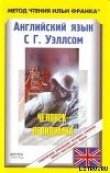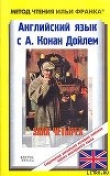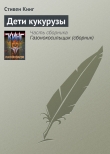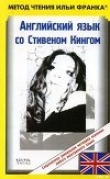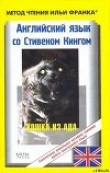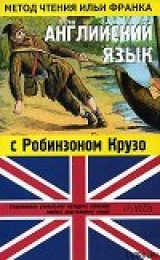
Текст книги "Английский язык с Робинзоном Крузо (в пересказе для детей)"
Автор книги: Илья Франк
Соавторы: James Baldwin
Жанры:
Языкознание
,сообщить о нарушении
Текущая страница: 7 (всего у книги 21 страниц) [доступный отрывок для чтения: 8 страниц]
I MAKE ME A CALENDAR
(я делаю себе календарь)
IT was now just one year since I was cast upon this lonely island (теперь был = прошел как раз один год с того времени, когда я был выброшен на этот необитаемый остров; to cast – бросать; lonely – одинокий; пустынный).

Do you wonder how I have kept an account of the time (вам интересно, как я вел счет времени)? I will tell you (я расскажу вам).
A few days after the ship wreck (несколько дней спустя после кораблекрушения) it came into my mind that I should lose track of the days and the seasons (мне пришло на ум, что я потеряю = могу потерять счет дней и сезонов = времен года). For I had neither almanac nor notebook (так как у меня не было ни альманаха = календаря, ни записной книжки; almanac – календарь; альманах, сборник). It would be hard always to remember the days of the week (будет трудно всегда помнить дни недели) and I might even forget when it was Sunday (и я могу даже забыть, когда воскресенье).
So I set up a large post by my door (поэтому я установил большой столб у двери). At the top of this post I cut in large letters these words (на верхушке столба я вырезал большими буквами эти слова; post – мачта, подпорка, свая, стойка, столб, кол, шест):
I CAME ON SHORE HERE (я высадился на берег здесь)
SEPTEMBER 30, 1659.
Every morning I cut a little notch on the side of the post under these words (каждое утро я вырезал зарубку на боку шеста под этими словами).
Every seventh notch was twice as long as the rest (каждая седьмая зарубка была в два раза длиннее других; rest – остаток, остальное), and this showed me that the day was Sunday (и это показывало мне, что этот день был воскресеньем).
Every thirtieth notch was longer and broader (каждая тридцатая зарубка была длиннее и шире). This showed me that a full month had gone by (это показывала мне, что прошел полный месяц).
It was thus I made my calendar (вот так я сделал календарь).
One morning I found, on counting up (одним утром я нашел, подсчитывая), that there were three hundred and sixty-five notches (что на столбе было 365 зарубок). I knew, therefore, that it was just one year since my landing (я узнал/понял, таким образом, что прошел уже год со времени моей высадки).
I sat in my castle and thought of the goodness of God in thus keeping me alive (я сидел в моем замке и думал о великодушии Бога /который/ так сохранил мне жизнь; to keep alive – сохранять в живых; goodness – доброта; великодушие) and safe in the midst of so many perils (и /к тому же/ посреди столь многих опасностей)
I humbled myself (я смирился; humble – смиренный), and thanked him for his many mercies (и поблагодарил его за его многие милости).
For twelve hours I tasted nothing (двенадцать часов я ничего не ел: «не пробовал»; to taste – попробовать /на вкус/, отведать). When, at last, the sun went down (когда, наконец, солнце зашло), I ate a biscuit and a bunch of grapes and went to bed (я съел печенье и гроздь винограда и лег спать: «пошел в постель»).
Having now been on the island a whole year (пробыв на острове уже целый год), I had learned that the seasons there were not the same as in England (я узнал, что времена года не были такими, как в Англии).
They were not to be spoken of as spring, summer, autumn, and winter (не приходилось говорить о весне, лете, осени и зиме). They were rather to be called the wet season and the dry season (скорее их нужно было называть дождливым и сухим сезонами). Indeed, there were two wet seasons and two dry seasons, in the year (в самом деле, было два влажных сезона = сезона дождей и два сухих сезона в году).
year [ˈjǝ:], since [sɪns], account [ǝˈkaunt], wreck [rek], neither [ˈnaɪðǝ], almanac [ˈɔ:lmǝnæk], full [ful], month [mʌnƟ], therefore [ˈðeǝfɔ:], solemn [ˈsɔlǝm], peril [ˈperɪl], autumn [ˈɔ:tǝm]
I MAKE ME A CALENDAR
IT was now just one year since I was cast upon this lonely island. Do you wonder how I have kept an account of the time? I will tell you.
A few days after the ship wreck it came into my mind that I should lose track of the days and the seasons. For I had neither almanac nor notebook. It would be hard always to remember the days of the week and I might even forget when it was Sunday.
So I set up a large post by my door. At the top of this post I cut in large letters these words:
I CAME ON SHORE HERE
SEPTEMBER 30, 1659.
Every morning I cut a little notch on the side of the post under these words.
Every seventh notch was twice as long as the rest, and this showed me that the day was Sunday.
Every thirtieth notch was longer still and broader. This showed me that a full month had gone by.
It was thus I made my calendar.
One morning I found, on counting up, that there were three hundred and sixty-five notches on the post. I knew, therefore, that it was just one year since my landing.
I kept this day as a solemn fast.
I sat in my castle and thought of the goodness of God in thus keeping me alive and safe in the midst of so many perils.
I humbled myself, and thanked him for his many mercies.
For twelve hours I tasted nothing. When, at last, the sun went down, I ate a biscuit and a bunch of grapes and went to bed.
Having now been on the island a whole year, I had learned that the seasons there were not the same as in England.
They were not to be spoken of as spring, summer, autumn, and winter. They were rather to be called the wet season and the dry season. Indeed, there were two wet seasons and two dry seasons, in the year.
I SOW SOME GRAIN
(я сею зерно)
THE first wet season began about the middle of February (первый влажный сезон начался примерно в середине февраля) and lasted till the middle April (и длился до середины апреля).

The first dry season (первый сухой сезон) began about the middle of April and lasted till the middle of August.
The second wet season (второй влажный сезон) began about the middle of August and lasted till the middle October.
The second dry season began about the middle of October and lasted till the middle of February.
I could not have kept track of these thing easily if it had not been for my calendar (я не смог бы вести учет этому так легко, если бы не мой календарь).
Just before the first rainy season began I was one day rummaging among the shelves in my cave (как раз перед тем, как начался первый сезон дождей, я одним днем копался среди полок в пещере; to rummage – тщательно разыскивать что-л.).
There I found the little bag (там я нашел небольшую сумку) that I had brought from the ship with some barley in it (которую я принес с корабля, с некоторым количеством ячменя в ней), as I have already told you (как я уже говорил вам).
I lifted it; it was almost empty (я поднял ее, она была почти пуста).
I looked inside (я заглянул внутрь). I saw nothing there but some dust and chaff (я не увидел там ничего, кроме пыли и мякины). The rats had been there (крысы побывали там), and had eaten the grains of barley (и съели зерна ячменя).
The bag would be useful for something else (сумка могла бы быть полезна для чего-нибудь другого). I took it outside and shook the dust and chaff upon he ground (я вынес ее наружу и вытряс пыль и мякину на землю). It was a sunny place (это было солнечное место), close by the great rock (близко к большой скале).
About a month after this (примерно /через/ месяц после этого), I saw that something green was starting to grow at that place (я увидел, что что-то зеленое начинало расти на том месте). I wondered what it was (я задался вопросом, что это было). It could not be grass (это не могла быть трава), for the stalks were larger and stronger (так как стебли были больше и крепче).
I had forgotten about the barley (я забыл о ячмене; to forget). But I took care that nothing should break the stalks down (но я позаботился, чтобы ничто не сломало стебли).
They grew fast (они росли быстро; to grow – расти), and were soon as high as my waist (и вскоре были такими высокими, как моя талия = стали мне по пояс). Then I was surprised to see ten or twelve heads of green barley come out (затем я был удивлен увидеть = с удивлением увидел, как появились десять или двенадцать головок = колосьев зеленого ячменя).
You cannot think how glad I was (вы не можете подумать = представить себе, как я был рад). I remembered, then, how I had shaken the bag of dust and chaff over that very spot (я вспомнил тогда, как я вытряс сумку пыли и мякины над тем самым местом; to shake – трясти).
But there was another surprise for me (но был и другой сюрприз/другая неожиданность для меня). I noticed in the wet ground (я заметил в мокрой земле) a little nearer the rock some other green plants (немного ближе к скале, несколько других зеленых растений). These were not so tall as the barley stalks (они не были такими высокими, как стебли ячменя), and they did not seem to be the same (и не казались быть тем же = и казалось, что это не ячмень).
I watched them for several days (я наблюдал за ними несколько дней). Then I saw that they were stalks of rice (затем я увидел, что они /эти ростки/ были стеблями риса). No doubt some grains of rice had been in the bag with the barley (без сомнения, несколько зерен риса было в сумке с ячменем), and had fallen out with the dust and chaff (и вывалились вместе с пылью и мякиной).
You may be sure that I took good care of the grain (можете быть уверены, я хорошо позаботился о зерне). As soon as the barley was ripe I harvested it (как только ячмень был созревшим = созрел, я собрал урожай; to harvest – собирать урожай). There was only a handful or two (это было всего лишь горсть или две); but I put it away where no rats could get to it (но я убрал его подальше, где никакие крысы не могли добраться до него). I wished to keep it safe and plant it again the next season (я хотел сохранить его и посадить вновь в следующем сезоне).
I did the same way with the rice (то же самое я проделал с рисом).
There was so little to begin with that it took a long time to grow a big crop (/его/ было так мало для того, чтобы начать /выращивать/ = пришлось начать со столь малого количества, что заняло долгое время вырастить большой урожай). It was not until the fourth harvest that I could keep some of the barley for bread (только с четвертым урожаем я смог сберечь/оставить немного ячменя для хлеба; until – до /какого-л. времени/).
I found that the best place to plant the grain was not on the hillside (я обнаружил, что лучшее место сажать зерно было не на склоне холма), but in a moist spot not far from my summer home (а во влажном месте недалеко от моего летнего дома).
One day, as soon as the wet season was at an end (однажды, как только влажный сезон закончился: «был при конце»), I made a visit to the country to see how my crops were growing (я совершил визит = поход вглубь острова, чтобы посмотреть, как растет мой урожай).
There I saw something that surprised me (там я увидел что-то, что поразило меня).
You will remember the fence that I built around my summer house (вы помните забор, который я построил вокруг моего летнего дома), or bower as I called it (или беседки, как я называл его). It was made of two rows of tall stakes, with brush between (он был сделан из двух рядов длинных кольев с ветками между /ними/).
Well, I now found that the stakes were still green (так вот теперь я обнаружил, что колья были все еще зелеными), and that long shoots or twigs were growing from them (и что длинные побеги, или ветки, росли на них). Some of these branches were already two or three feet long (некоторые из веток были уже два-три фута длиной).
This pleased me very much (это меня очень порадовало; to please – нравиться). I cut and trained the growing branches into just such shapes as I wished (я подрезал и согнул растущие ветки как раз в такую форму, как я хотел).
They grew very fast (они росли очень быстро; to grow – расти), and soon the whole fence was covered with green leaves (и вскоре весь забор был покрыт зелеными листьями). Then I trained the long branches toward the top of a pole which I set up in the center of my bower (затем я загнул длинные ветки к верхушке шеста, который я установил в центре беседки).
In a few months the whole inclosure was covered with a green roof (через несколько месяцев все огороженное пространство было покрыто зеленой крышей).
You cannot think how beautiful it was (вы не можете себе представить, насколько это было красиво). The place was shady and cool (место было тенистым и прохладным; shade – тень), the pleasantest spot one could wish to have (самое приятное место, /которое/ кто-либо мог желать иметь).
I did not know what kind of tree it was that grew in this wonderful way (я не знал, какой вид дерева это был, что рос таким удивительным способом). But I cut some more stakes of the same sort and carried them home to my castle (но я срезал несколько еще кольев этого же вида и принес их домой в мой замок).
I set these stakes in a double row (я воткнул эти колья в двойной ряд), about twenty inches outside of my first wall (примерно в двадцати дюймах снаружи от моей первой стены). In a few weeks they began to grow (через несколько недель они начали расти). They grew so fast that in two years they covered the whole space in front of my castle (они росли столь быстро, что через два года они покрыли все пространство перед моим замком).
They were not only handsome to look at (на них не только было приятно смотреть; handsome – красивый), but they helped to protect my castle (но они /к тому же/ помогали защищать мой замок).
February [ˈfebru(ǝ)rɪ], April [ˈeɪpr(ǝ)l], August [ˈɔ:ɡ ǝst], October [ɔkˈtǝubǝ], dust [dʌst], chaff [tʃɑ:f], stalk [stɔ:k], surprised [sǝˈpraɪzd], notice [ˈnǝutɪs], several [ˈsev(ǝ)r(ǝ)l], cover [ˈkʌvǝ], handsome [ˈhæn(d)sǝm], protect [prǝˈtekt]
I SOW SOME GRAIN
THE first wet season began about the middle of February and lasted till the middle April. The first dry season began about the middle of April and lasted till the middle of August.
The second wet season began about the middle of August and lasted till the middle October.
The second dry season began about the middle of October and lasted till the middle of February.
I could not have kept track of these thing easily if it had not been for my calendar.
Just before the first rainy season began I was one day rummaging among the shelves in my cave.
There I found the little bag that I had brought from the ship with some barley in it, as I have already told you.
I lifted it; it was almost empty.
I looked inside. I saw nothing there but some dust and chaff. The rats had been there, and had eaten the grains of barley.
The bag would be useful for something else. I took it outside and shook the dust and chaff upon the ground. It was a sunny place, close by the great rock.
About a month after this, I saw that something green was starting to grow at that place. I wondered what it was. It could not be grass, for the stalks were larger and stronger.
I had forgotten about the barley. But I took care that nothing should break the stalks down.
They grew fast, and were soon as high as my waist. Then I was surprised to see ten or twelve heads of green barley come out.
You cannot think how glad I was. I remembered, then, how I had shaken the bag of dust and chaff over that very spot.
But there was another surprise for me. I noticed in the wet ground a little nearer the rock some other green plants. These were not so tall as the barley stalks, and they did not seem to be the same.
I watched them for several days. Then I saw that they were stalks of rice. No doubt some grains of rice had been in the bag with the barley, and had fallen out with the dust and chaff.
You may be sure that I took good care of the grain. As soon as the barley was ripe I harvested it. There was only a handful or two; but I put it away where no rats could get to it. I wished to keep it safe and plant it again the next season.
I did the same way with the rice.
There was so little to begin with that it took a long time to grow a big crop. It was not until the fourth harvest that I could keep some of the barley for bread.
I found that the best place to plant the grain was not on the hillside, but in a moist spot not far from my summer home.
One day, as soon as the wet season was at an end, I made a visit to the country to see how my crops were growing.
There I saw something that surprised me.
You will remember the fence that I built around my summer house, or bower as I called it. It was made of two rows of tall stakes, with brush between.
Well, I now found that the stakes were still green, and that long shoots or twigs were growing from them. Some of these branches were already two or three feet long.
This pleased me very much. I cut and trained the growing branches into just such shapes as I wished.
They grew very fast, and soon the whole fence was covered with green leaves. Then I trained the long branches toward the top of a pole which I set up in the center of my bower.
In a few months the whole inclosure was covered with a green roof.
You cannot think how beautiful it was. The place was shady and cool, the pleasantest spot one could wish to have.
I did not know what kind of tree it was that grew in this wonderful way. But I cut some more stakes of the same sort and carried them home to my castle.
I set these stakes in a double row, about twenty inches outside of my first wall. In a few weeks they began to grow. They grew so fast that in two years they covered the whole space in front of my castle.
They were not only handsome to look at, but they helped to protect my castle.
I MAKE A LONG JOURNEY
(я предпринимаю длинное путешествие)
I HAD long wished to see the whole of my island (я уже давно желал увидеть весь мой остров: «целое моего острова»). So, one fine morning (так что, одним прекрасным утром), I set out to travel across to the other side of it (я пустился путешествовать через /него/ до другого берега).

Of course I carried my gun with me (конечно, я нес мое ружье с собой). In my belt was my best hatchet (на ремне у меня был мой лучший топорик). In my pouch (в /патронной/ сумке) I had plenty of powder and shot (у меня было много пороха и дроби). In my pocket were two biscuits and a big bunch of raisins (в кармане было два печенья и большая горсть изюма; bunch – связка, пучок, пачка). My dog followed behind me (моя собака следовала за мной).
I went past my summer house (я прошел мимо летнего дома), or bower (или беседки), and toward evening came to a fine open place close by the sea (и к вечеру пришел на красивое открытое место близко к морю).
It was a beautiful sight (это был красивый вид). The sky was clear, the air was still (небо было ясным, воздух спокойным). The smooth waters (тихие воды; smooth – гладкий) stretched away and away toward the setting sun (тянулись вдаль и вдаль /по направлению/ к заходящему солнцу).
Far in the distance (далеко на расстоянии) I could see land (я мог видеть землю). I could not tell whether it was an island or some part of the mainland of America (я не мог сказать, был ли это остров или часть континента Америки). It was at least fifty miles away (она /земля/ была по меньшей мере в пятидесяти милях).
If it were the mainland (если бы это был материк), I felt quite sure (был совершенно уверен; to feel – чувствовать) that I would at some time or other see a ship sailing hither to it or from it (что когда-нибудь: «в какое-либо время или другое» я увижу корабль, плывущий сюда к нему или от него; hither – сюда). If it were an island (если это был остров), there might be savages (там могли быть дикари) whom it would not be safe for me to meet (которых для меня было бы небезопасно встретить). But it would do no good to worry my mind about such matters (не было смысла беспокоить мой ум /вопросами/ о подобных вещах: «материях»).
I found this side of the island much more beautiful than that where my castle was (я обнаружил, что эта сторона острова была намного красивее, чем та, где был мой замок).
Here were large, open fields, green with grass (здесь были большие, открытые поля, зеленые от травы = покрытые травой) and sweet with flowers (и красивы от цветов; sweet – сладкий; приятный). Here, too, were fine woods, with many strange trees and vines (здесь также были красивые рощи с множеством странных деревьев и вьющихся растений).
I saw many green parrots among the trees (я увидел много зеленых попугаев среди деревьев), and I thought how I would catch one and teach it to talk (и подумал, как бы мне поймать одного и научить его говорить).
After a great deal of trouble I knocked a young one down with my stick (после множества трудностей я сбил молодого /попугая/ палкой). He was a good fighter (он был хорошим бойцом; to fight – сражаться), and it was no easy matter to get him (и было не простым делом заполучить его). But at last I picked him up and put him in my bag (но в конце концов я подобрал его и положил в свою сумку).
He was not hurt (он не был ранен; to hurt – причинить боль; ранить; ушибить), and I carried him home (и я отнес его домой). It was a long time before I could make him talk (прошло много времени, прежде чем я заставил/научил его говорить). But at last he became a great pet (но в конце концов он стал прекрасным питомцем) and would call me by my name (и называл меня по имени). I shall have a funny story to tell about him after a while (я буду иметь смешную историю рассказать = я расскажу смешную историю о нем через некоторое время).
Besides parrots there were many other birds in the woods (кроме попугаев, там было много других птиц в лесу). Some of these were of kinds that I had never seen before (некоторые из них были видов, которых я никогда раньше не видел).
In the low grounds I saw some animals that looked like rabbits (на низких землях = в низинах я видел некоторых животных, которые выглядели как кролики). There were others that I took to be foxes (там были /и/ другие, которых я принимал за лис), but they were not such foxes as we have in England (но они были не такими лисами, какиеу нас в Англии).
I traveled very slowly around the island (я путешествовал очень медленно по острову), for I wished to see everything (так как хотел увидеть все). Often I did not go more than two miles in a day (часто я не проходил более двух миль в день).
At night I sometimes slept in a tree (ночью я иногда спал на дереве; to sleep – спать), while my dog watched below me (в то время как моя собака охраняла внизу). Sometimes I shut myself up in a little pen made by driving tall stakes into the ground (иногда я скрывался в маленьком загончике, сделанном посредством вбивания длинных палок в землю; to shut – закрывать, запирать, затворять; to shut up – плотно закрыть; забить, заколотить; запирать /что-л. где-л./; хранить; прятать; pen – небольшой загон /для скота, птицы/). I felt quite safe (я чувствовал себя вполне в безопасности; to feel – чувствовать), for nothing could come near me without waking me (так как ничто не могло приблизиться ко мне, не разбудив меня: «без того, чтобы разбудить меня»).
Along the seashore there were thousands of turtles (вдоль берега были тысячи черепах) and a great plenty of waterfowl (и множество водоплавающих птиц; fowl – птица; дичь).
I had no trouble to find all the food I needed (у меня не было трудностей с нахождением всей той еды, в которой я испытывал потребность). Sometimes I had a roast pigeon for dinner (иногда у меня был жареный голубь на обед), sometimes the juicy meat of a turtle (иногда сочное мясо черепахи; juice – сок), sometimes that of a goat (иногда /мясо/ козы). No king could have fared better (никакой король не мог бы поесть лучше; to fare – жить, поживать; питаться).
One day my dog caught a young kid (однажды собака поймала козленка). I ran and got hold of it (я побежал и схватил его; to get hold of smth. – схватить что-л.: «получить ухват/хватку»), and would not let him hurt it (и не позволил ей ранить его).
I had a great mind to take it home with me (у меня было большое желание взять его домой с собой). So I made a collar for it (поэтому я сделал для него ошейник), and led it along by a string which I had in my pocket (и отвел его на веревке, которая была у меня в кармане; to lead – вести).
It was quite wild (он был довольно диким) and did not lead well (и не велся хорошо = нелегко было его вести). It gave me so much trouble that I took it to my summer house and left it there (он доставил мне так много трудностей, что я отвел его в летний дом и оставил там; to leave – оставлять, покидать).
I then went home to my castle (затем я ушел домой в мой замок).
travel [trævl], across [ǝˈkrɔs], pouch [ˈpautʃ], sure [ˈʃuǝ], knock [nɔk], bird [bǝ:d], along [ǝˈlɔŋ], fowl [ˈfaul], pigeon [ˈpɪʤɪn], juicy [ˈʤu:sɪ], collar [ˈkɔlǝ], [trʌbl]
I MAKE A LONG JOURNEY
I HAD long wished to see the whole of my island. So, one fine morning, I set out to travel across to the other side of it. Of course I carried my gun with me. In my belt was my best hatchet. In my pouch I had plenty of powder and shot. In my pocket were two biscuits and a big bunch of raisins. My dog followed behind me.
I went past my summer house, or bower, and toward evening came to a fine open place close by the sea.
It was a beautiful sight. The sky was clear, the air was still. The smooth waters stretched away and away toward the setting sun.
Far in the distance I could see land. I could not tell whether it was an island or some part of the mainland of America. It was at least fifty miles away.
If it were the mainland, I felt quite sure that I would at some time or other see a ship sailing hither to it or from it. If it were an island, there might be savages on it whom it would not be safe for me to meet. But it would do no good to worry my mind about such matters.
I found this side of the island much more beautiful than that where my castle was.
Here were large, open fields, green with grass and sweet with flowers. Here, too, were fine woods, with many strange trees and vines.
I saw many green parrots among the trees, and I thought how I would catch one and teach it to talk.
After a great deal of trouble I knocked a young one down with my stick. He was a good fighter, and it was no easy matter to get him. But at last I picked him up and put him in my bag.
He was not hurt, and I carried him home. It was a long time before I could make him talk. But at last he became a great pet and would call me by my name. I shall have a funny story to tell about him after a while.
Besides parrots there were many other birds in the woods. Some of these were of kinds that I had never seen before.
In the low grounds I saw some animals that looked like rabbits. There were others that I took to be foxes, but they were not such foxes as we have in England.
I traveled very slowly around the island, for I wished to see everything. Often I did not go more than two miles in a day.
At night I sometimes slept in a tree, while my dog watched below me. Sometimes I shut myself up in a little pen made by driving tall stakes into the ground. I felt quite safe, for nothing could come near me without waking me.
Along the seashore there were thousands of turtles and a great plenty of waterfowl.
I had no trouble to find all the food I needed. Sometimes I had a roast pigeon for dinner, sometimes the juicy meat of a turtle, sometimes that of a goat. No king could have fared better.
One day my dog caught a young kid. I ran and got hold of it, and would not let him hurt it.
I had a great mind to take it home with me. So I made a collar for it, and led it along by a string which I had in my pocket.
It was quite wild and did not lead well. It gave me so much trouble that I took it to my summer house and left it there.
I then went home to my castle.

